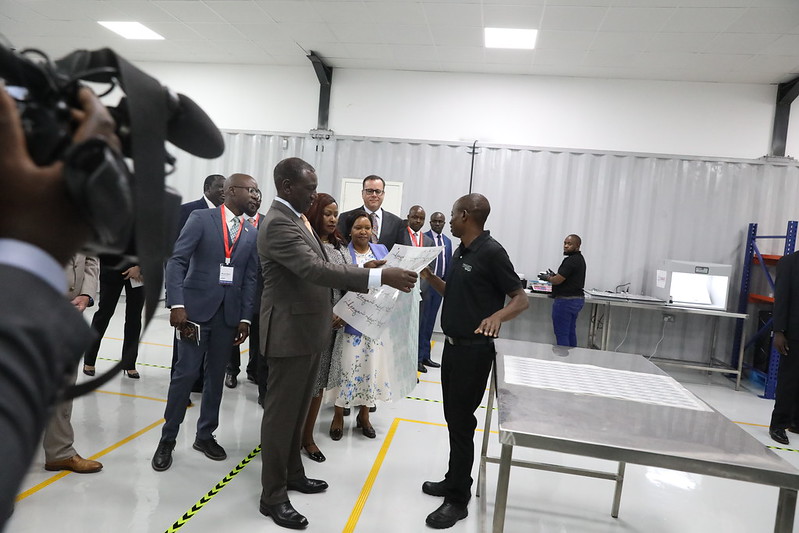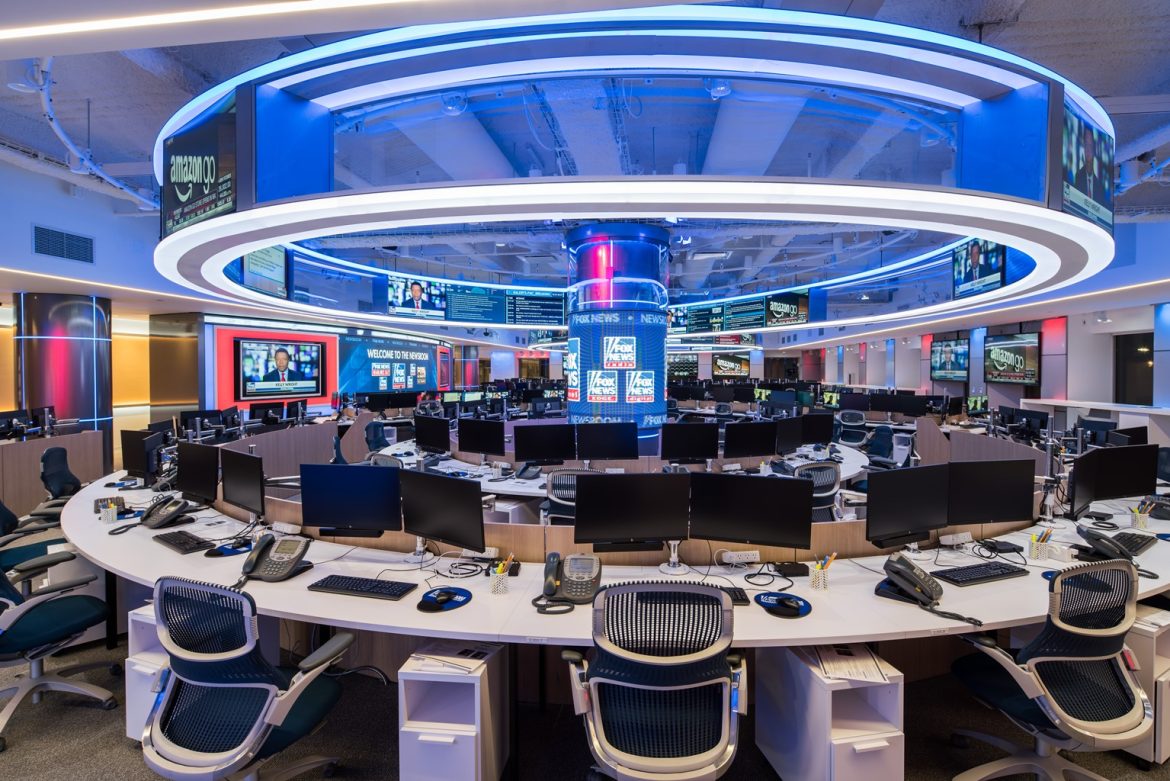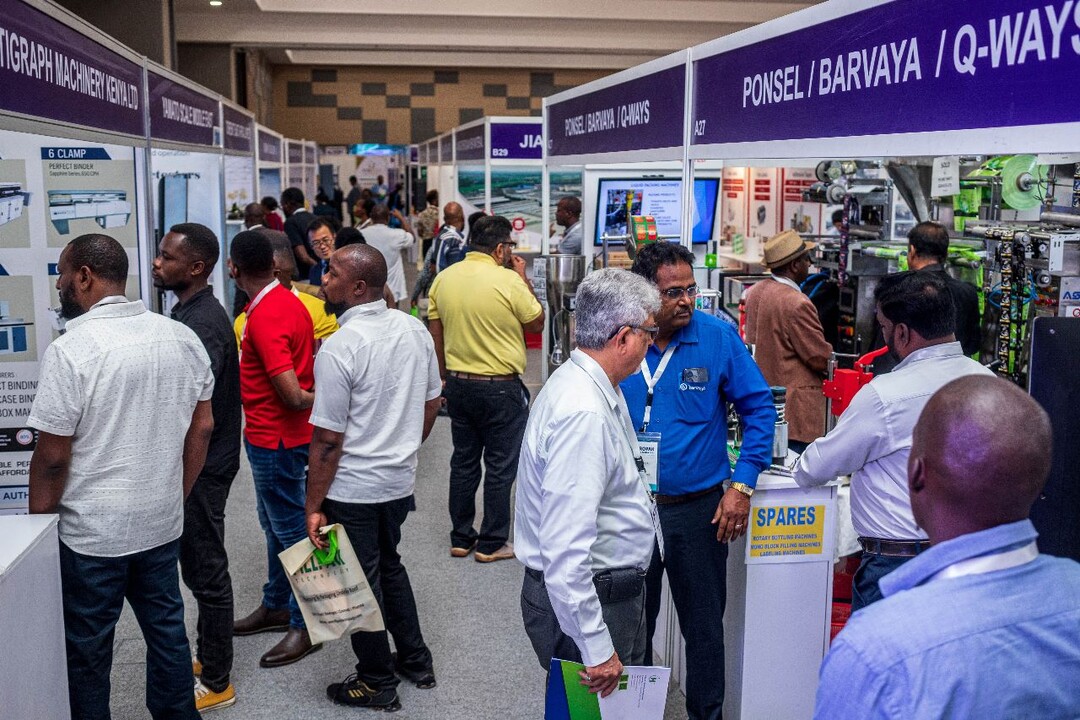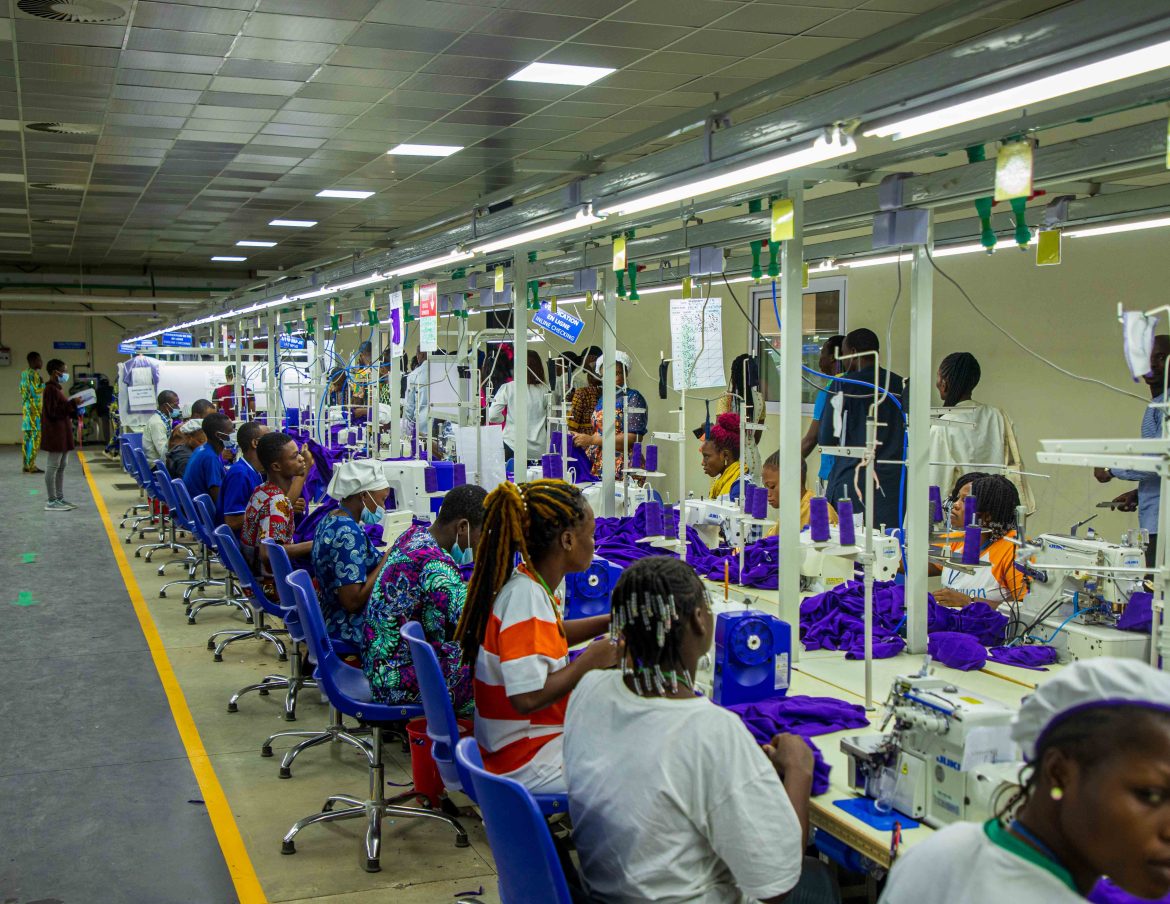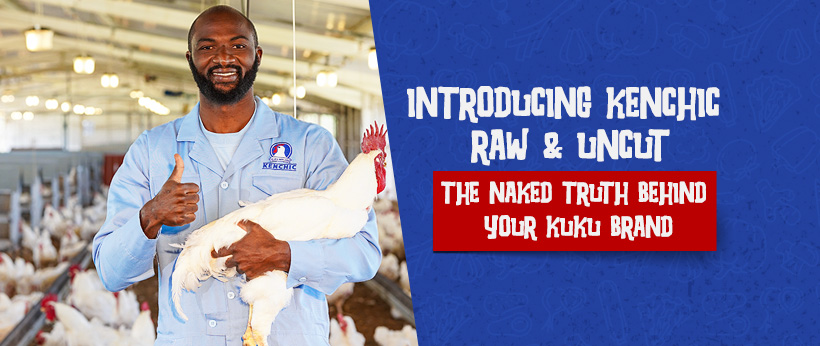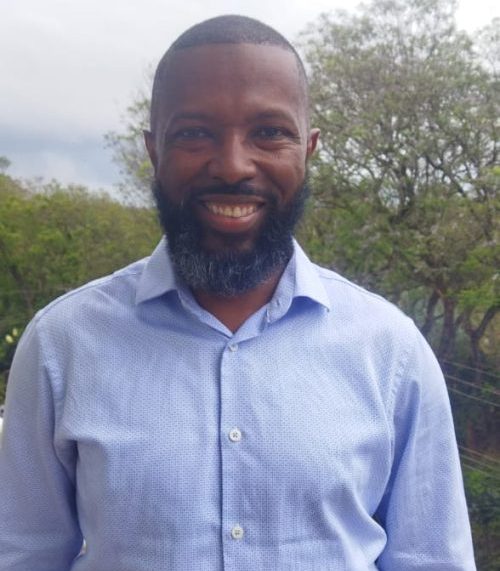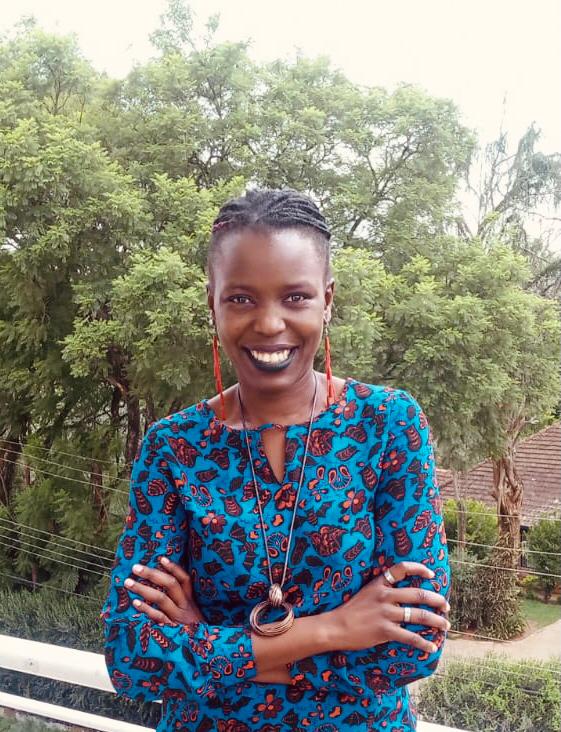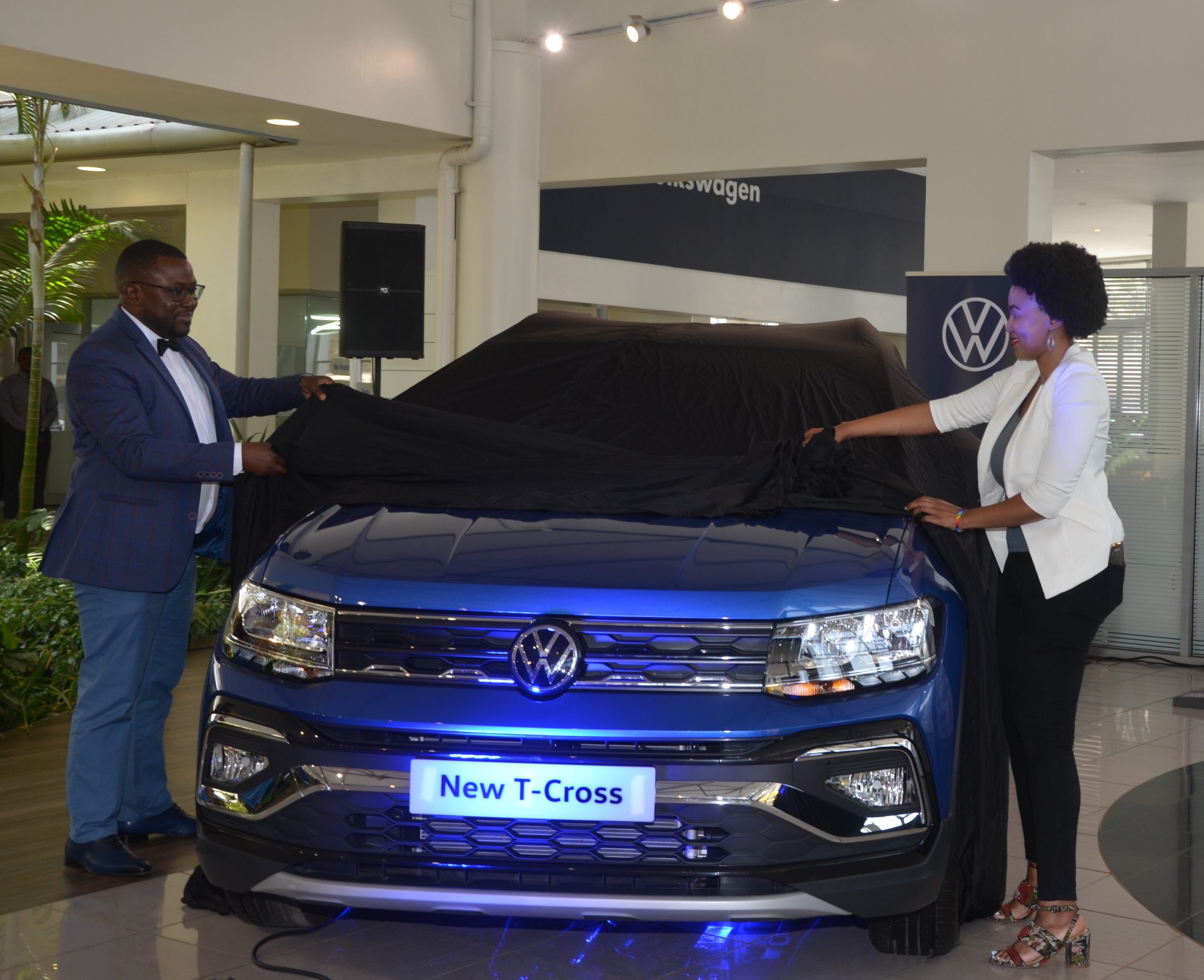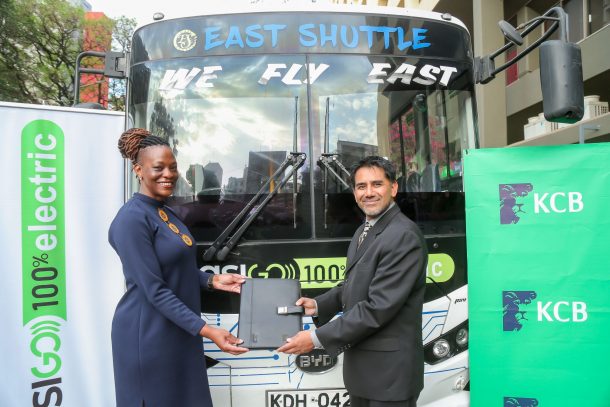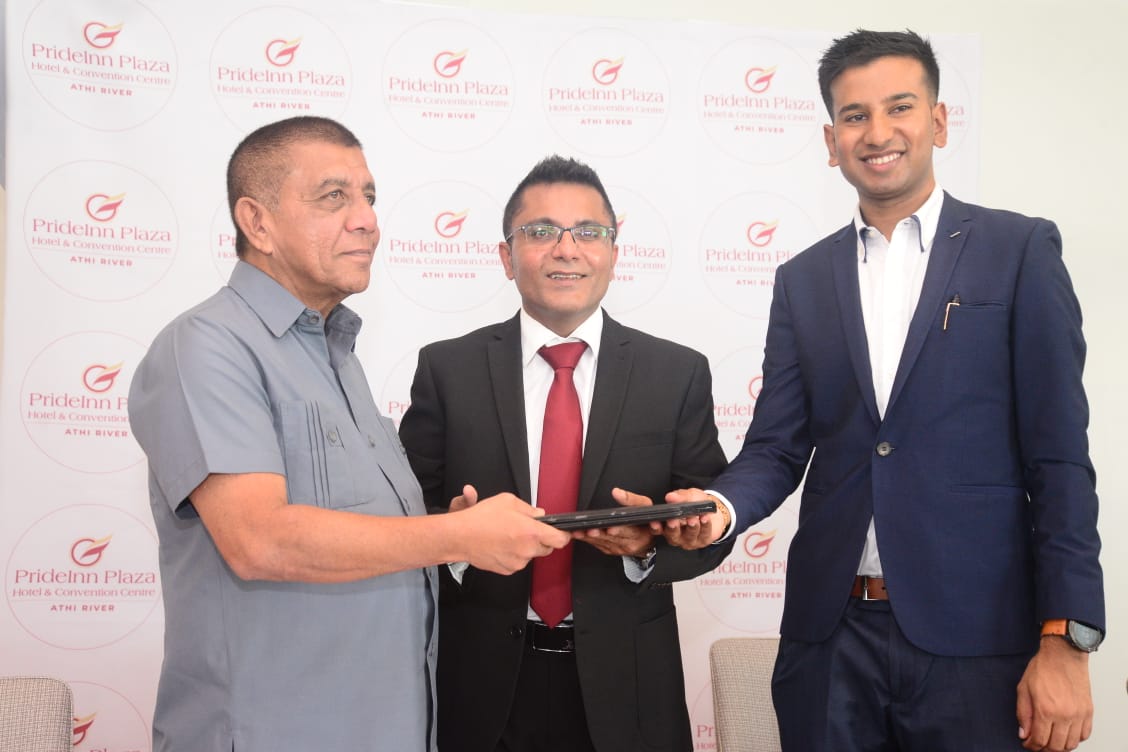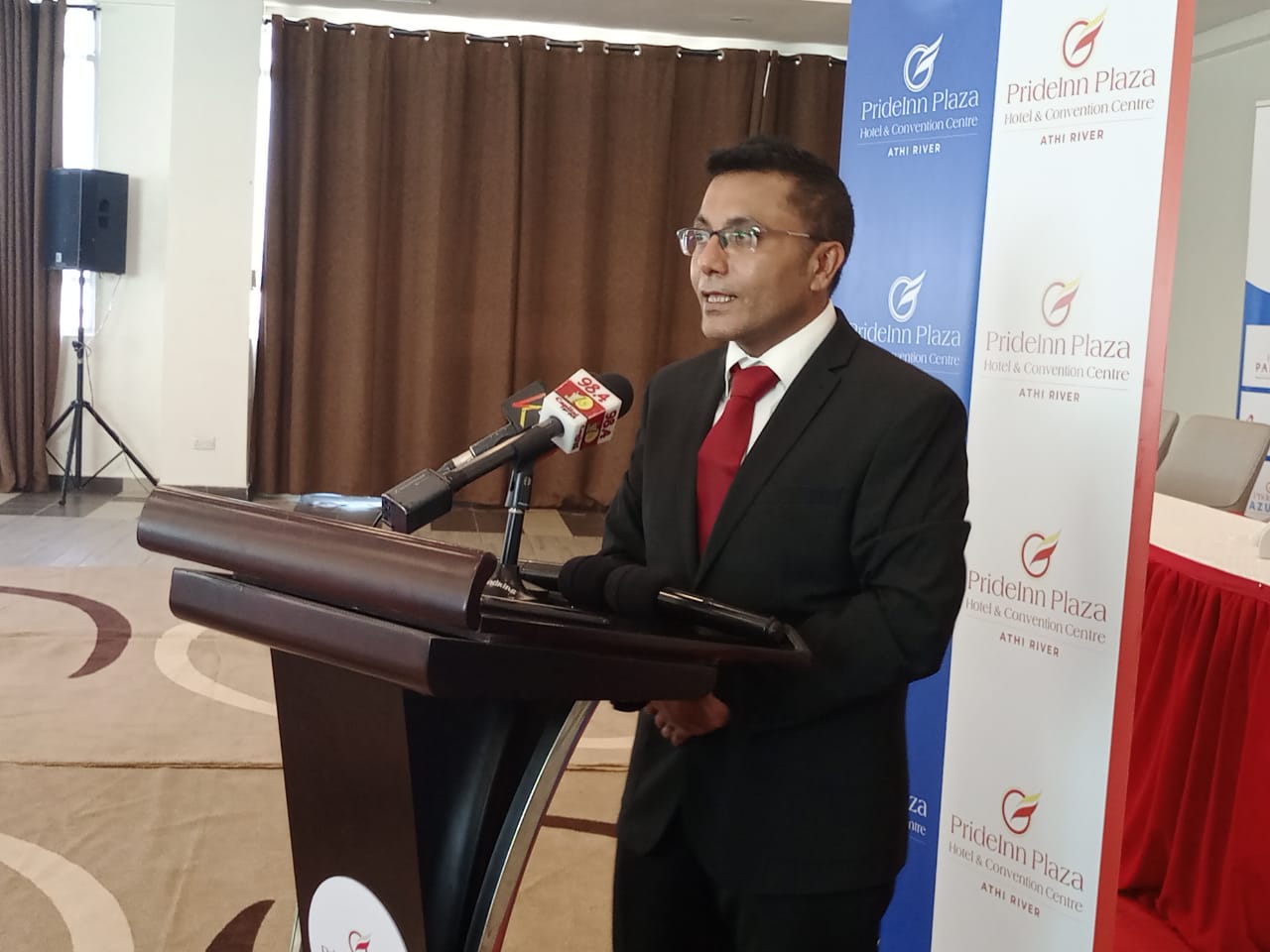“Kutembea kwingi ndio kuona mengi,” a Swahili proverb meaning, “To walk a lot is to see much,” resonated deeply with me at Nexgen Packaging Kenya, EPZ Limited, Athi River, Machakos County, where they launched their newest apparel brand identification and packaging factory with state-of-the-art machinery and equipment.
H.E. President William Ruto, U.S. Ambassador Meg Whitman, USAID Mission Director David Gosney, Prosper Africa Coordinator British Robinson, Machakos County Governor H.E. Wavinya Ndeti, and Cabinet Secretary for the Ministry of Investment, Trade and Industry Hon. Rebecca Miano attended the launch.
Through a $750,000 grant provided by the United States Agency for International Development (USAID), the new factory will will boost production efficiency, create new jobs in Kenya, and increase apparel exports to the United States.
The opening of Nexgen Packaging EPZ factory adds to the 39 apparel companies currently based in Kenya’s Export Processing Zones. Located in over 19 countries globally, Nexgen Packaging provides packaging for retail, apparel, and footwear industries, and produces garments for big names such as New Balance, Sports Wear Under Armour, and Ralph Lauren.
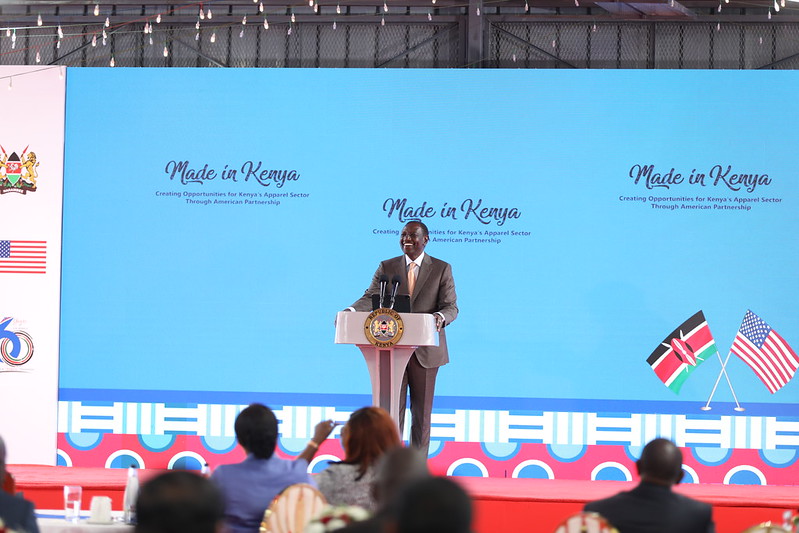
The Textile and Apparel Industry in Kenya
Economic history shows that the clothing and textile industry played an important role in the industrialization of today’s developed countries. This is because of the industry’s unique characteristics of being labor intensive and its links with other sectors of the economy such as agriculture.
The textile and apparel sector in Kenya continues to play a major role in the country’s economy, as well as export earnings. This particular sector employs a large number of the population, especially youth and women, from both the rural and urban areas. In turn, the two groups are able to cater for themselves and their families.
Economically, the sector is a key contributor to Kenya’s Gross Domestic Product (GDP), and export earnings. This has been accelerated since the entry of the African Growth and Opportunity Act (AGOA). Through the act, Kenyan firms receive a duty and quota free access to the US. An agreement that has seen Kenyan apparel exports to the US take the largest share (US$ 352 million) of the total exports in 2016.
Kenya’s apparel exports currently stand at about Ksh.51 billion, according to a Kenya Association of Manufacturers (KAM) report.
Speaking at the event, H.E. President William Samoei Ruto said, “As already stated, 29 apparel companies operating in our EPZ export to the US, and employ nearly 60,000 people. They have enabled Kenya to export over $7 billion worth of garments to the US duty-free, of which $545 million was exported in 2022. Consequently, Kenya is now the biggest garment exporter to the US in our part of Africa, and our Africa Growth and Opportunity (AGOA) apparel strategy has stimulated a twelve-fold increase i the value of our exports in 2 decades.”
The Kenyan Government has implemented various initiatives such as policy reforms, investment incentives, and skills development programs, to support the growth and development of the textile and apparel sector.
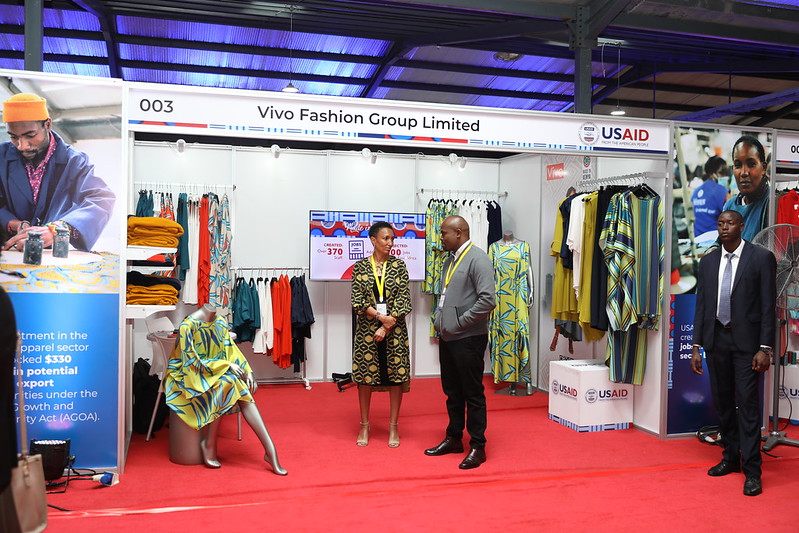
The Launch
During a “Made in Kenya,” expo, fourteen Kenyan apparel and textile businesses that have received direct support from the United States showcased the huge potential of the Kenyan apparel sector to create more Kenyan jobs and increasing two-way direct trade and investments.
The Fourteen are Nexgen Packaging EPZ Limited, Hela Intimates EPZ Limited, Vivo Fashion Group Limited, MAS Holdings PVT Limited, Best Lifestyles Kenya EPZ Limited, United Aryan EPZ Limited, JF&I Packaging Kenya EPZ Limited, Kohinoor Elastic Kenya EPZ Limited, Ikwetta Holdings Limited, Ashton Mombasa Apparel EPZ Limited, Ubuntu Life, and Mega Apparel Industries EPZ Limited.
From their brief introductions, I noted that most of the businesses source a larger percentage of their raw materials and man-power locally.
Ubuntu Life, for example, began as a daycare for special needs children. With time, some of the ladies began a new conversation on having something to do while their kids were being taken care of. What started twenty years ago as nine women learning to sew on manual sewing machines has now transformed into a thriving social enterprise employing over 150 full-time Makers that are changing their lives and the world. The business sources its raw materials locally and makes their handcrafted products in their studio based in Maai Mahiu, and does 90% exports to the US, and sells 10% of their products locally. Through the enterprise, the business has created 150+ (full-time and part-time) jobs.
The President said that the the youthful population in Kenya, is well-educated, tech-savvy and highly skilled, and our people are renowned for their motivation, drive, innovation, and entrepreneurship. Investors will not need to outsource man-power due to the same.
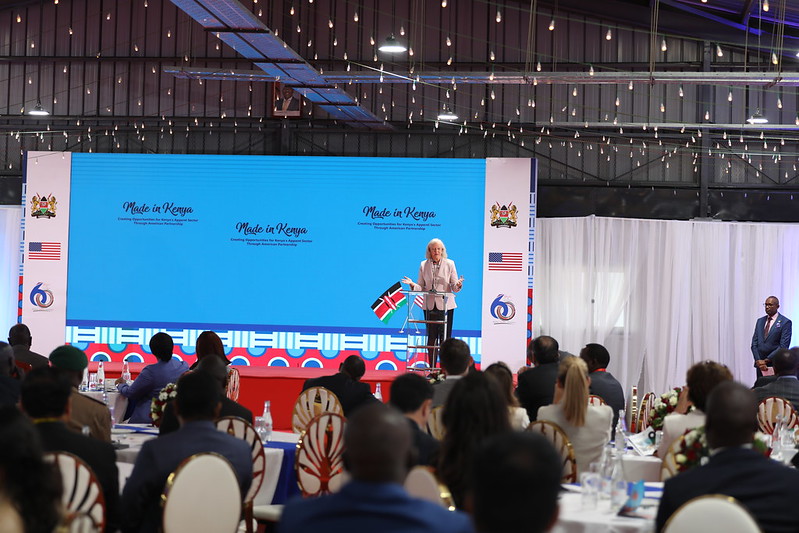
USAID’s investments in Kenya’s textile and apparel sector have resulted in $67 million in direct investment and helped create 20,000 new jobs, marking a huge milestone in advancing shared U.S.-Kenya economic prosperity. The President stated that these companies have committed to match this investment with their investments, amounting it to $77million in total.
“This combined effort will be expected to generate an additional $330 million in apparel exports and create over 20,000 new jobs by the end of 2022.”
“These investments by American companies create quality jobs for Kenyans, and economic opportunities for both of our countries,” said U.S Ambassador Whitman. “USAID’s investments are ensuring Kenyan prosperity through American partnership.”
